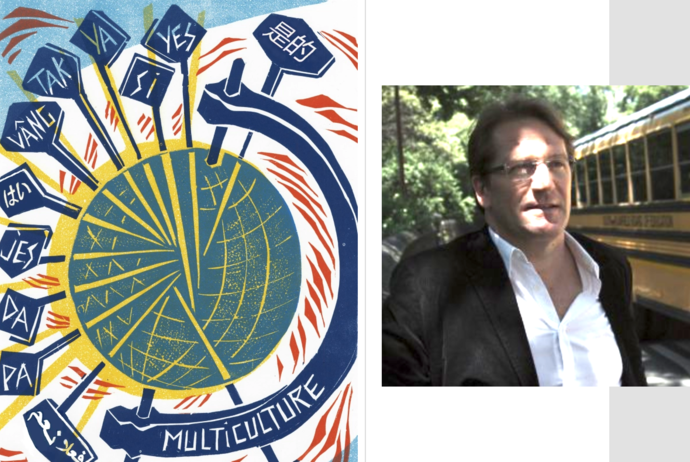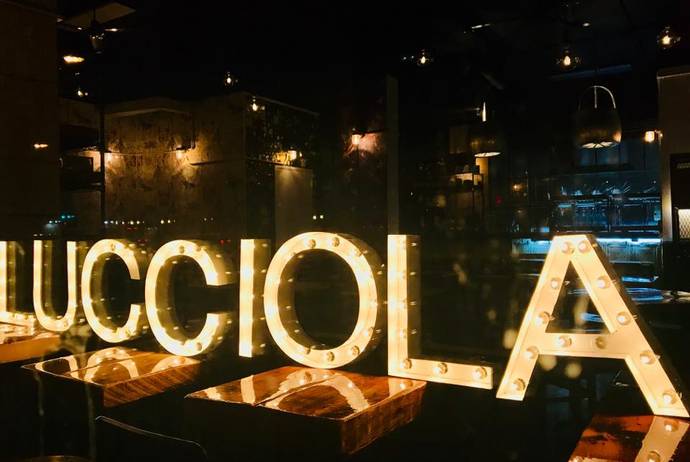Monday, January 27, the first international edition of the Italian Export Forum (IEF) took place in New York, at the School of Visual Arts Theatre. Launched by the Founder and CEO of The ONE Company, Lorenzo Zurino, IEF wants to establish itself as a ‘home,’ a space for the various actors involved in exporting and promoting the Made in Italy brand abroad to come together and share their experiences, resources, and goals for the future.
“The Forum proposes itself as an effective tool for supporting those businesses seeking a content-driven internationalization rather than one made up of slogans,” Zurino explains.
Following the first edition, which took place in June 2019 in Piano di Sorrento, IEF now makes its way to New York, a crucial point of reference for the promotion of the Made in Italy brand, with a panel titled "Italy: Exporting Beauty," featuring the following speakers: Gianfranco Sorrentino, President of Gruppo Italiano (GI); Monica Mandelli, Managing Director of gloabal investment firm KKR; Andrea Benetton, CEO of Cirio Agricola and Maccarese Agricola; Rocco Totino, Partner of accounting and consulting firm Grassi & Co; Giovanni Colavita, CEO of Colavita USA; Franco Pavoncello, President of John Cabot University in Rome; Valeria Fascione, Campania Regional Minister for Internationalization, Startups and Innovation; Mimmo Turano, Sicilian Regional Assembly Deputee; Nello Musumeci, President of the Region of Sicily.
Moderated by Journalist and co-founder of Your Italian Hub, Francesca di Matteo, the panelists shared their perspectives and experiences regarding the internationalization of Italian businesses and the promotion of the Made in Italy brand, particularly focusing on key strategies and mindsets to adopt and on how to avoid falling into common mistakes.
The President of Gruppo Italiano, a non-profit association that brings together Italian restaurateurs, importers, and distributors, Gianfranco Sorrentino, opened the event by stating that “Italian export is a valuable resource for the country and for the world, and must be supported in every way.”
Mr. Zurino then asked the audience to join him in observing a moment of silence for the recently deceased American basketball legend Kobe Bryant. He then briefly introduced the Forum, claiming that he plans to bring it “wherever the Made in Italy brand will be, which means everywhere!”
He then gave the floor to Lauren Merkel, the Director of Partnerships at Global NY, who read a hearfelt letter by NY State Governor Andrew Cuomo, in which he expressed his appreciation for the initiative’s “entrepreneurial and innovative” spirit, confirming his government’s willingness to collaborate with Italian projects. “The Italian community continues to make great contributions to the entire world,” the Governor wrote, “well reflected in the distinctive tastes, timeless styles, and bold designs generated by individuals of prolific talent and creativity.”
This intervention was followed by a speach from the Consul General of Italy, Francesco Genuardi, who stressed the need to celebrate and promote “not only 'Italian Tradition and American Innovation' but also Italian Innovation and the American tradition of loving Italy.”
The panelists then began to discuss their experiences with internationalization and their specific roles within this dynamic. Monica Mandelli (Managing Director of gloabal investment firm KKR) spoke about her experience in helping Italian companies to position themselves and grow in the US market. She then spoke about Endeavor Italy (of which she is the VP) and its mission to identify promising entrepreneurs and providing them with the right tools and advice to expand abroad. “Italy exports great talent,” she said, “and that’s what we look for - not only products but people, talent, passion.”
The Forum then showed a video intervention by Andrea Benetton, the CEO of Cirio Agricola and Maccarese Agricola, who argued that “Made in Italy is an exceptional brand” and is internationally recognized as such but that is no longer enough, especially on the American market. “Companies have to learn to work together, because that’s the only way to grow.”
Rocco Totino of accounting and consulting firm Grassi & Co, urged Italian entrepreneurs to be strategic, to think more long-term rather than just short term and especially to “do their homework,” study the destination market in depth, and surround themselves with the right advisors and counselors to help them navigate the US market. “The culture is different and it is necessary that they understand it and learn to adapt.”
He was echoed by Giovanni Colavita, CEO of Colavita USA, who also stressed the necessity for Italian companies to adapt to the US market, explaining how his own company chose to invest in educating the consumers to foster a deeper understanding of their products and thus create a demand for them.
“Oftentimes, Italian companies mistakingly think that because they are known in Italy, they must also be known abroad,” he said. “They don’t know how to comunicate themselves. They either turn to American agencies who are very good at their job but don’t know anything about the Italian context surrounding the products they are promoting, or they turn to Italian agencies who understand their products but not the American market. That’s why we recently created, along with i-Italy, Your Italian Hub, a communication agency serving as a bridge between Italy and the US.”
It was then time for another video message by the President of John Cabot University, Franco Pavoncello, who expressed his belief that Italy is entering a “new Renaissance,” that its excellencies are flourishing and becoming known and appreciated throughout the world.
Valeria Fascione then spoke of her experience as Campania's Regional Minister for Internationalization, Start-ups, and Innovation and how her team has been working to select new local business with export potential as well as the foreign markets that are best suited to receiving them, which of course include the US but also Singapore and Israel, for example.
Still from the more institutional perspective, Mimmo Turano briefly illustrated the plan that the region of Sicily is implementing to support the internationalization of its businesses, stating that “These initiatives have contributed to growth in all sectors, though the food industry remains the strongest.”
Finally, the President of the Region of Sicily, Nello Musumeci, was the star of the night, engaging the audience with his direct and simple approach. He particularly highlighted the importance of overcoming stereotypes and the need for corageous entrepreneurs. Additionally, he was one of the few who spoke of internationalization not only in the sense of exporting Italy abroad but also of attracting foreign investments.
“We want to encourage American investments in Sicily because now is a time of great opportunity,” he explained. “Sicily has to change its mentality. Its position at the center of the Mediterranean is ideal for attracting foreign capital. We have to be optimistic.”
The audience was fully engaged in the discussion and followed up with questions that touched upon every aspect the panelists covered, from the need for institutional support, to the importance of educating foreign consumers in recognizing the value of Italian products; from the necessity of helping businesses select the right advisors, to that of preparing young people to be open and ready to look for opportunities abroad.







































